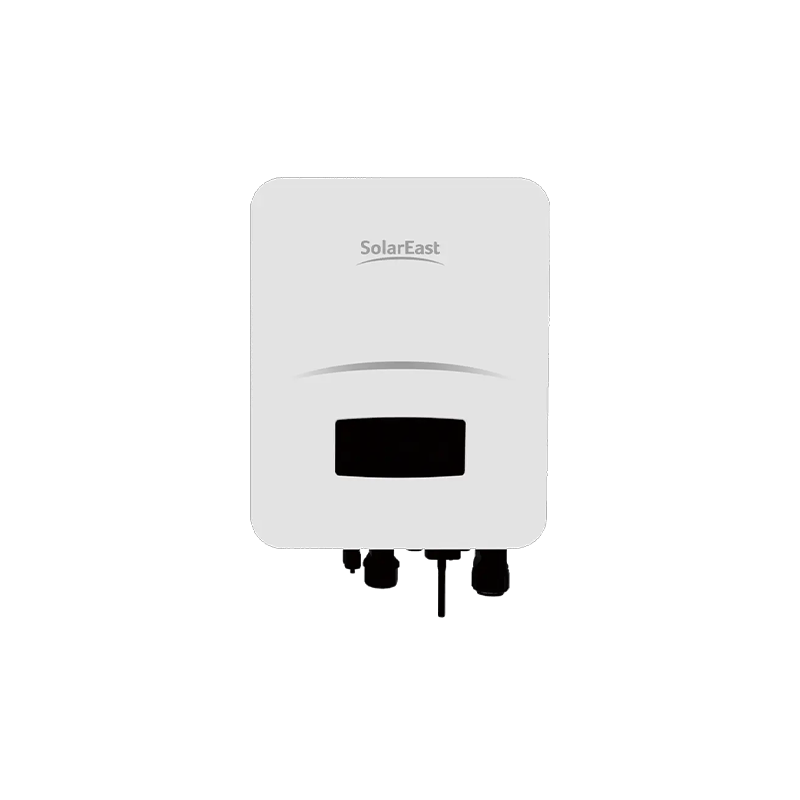As solar energy adoption grows, businesses and energy solution providers seek efficient and reliable energy storage solutions. A hybrid inverter plays a crucial role in integrating solar power generation with energy storage systems (ESS). This guide explores what a hybrid inverter is, how it works, and why it is an essential component of modern solar energy solutions.
Understanding Hybrid Inverters
A hybrid inverter is an advanced power conversion device that integrates solar photovoltaic (PV) systems with battery storage and the grid. Unlike traditional inverters, which only convert DC electricity from solar panels into AC power, hybrid inverters manage both energy generation and storage, optimizing electricity consumption.
Key Functions of a Hybrid Inverter
- Solar Energy Conversion – Converts DC power from solar panels into usable AC electricity.
- Battery Management – Controls the charging and discharging of energy storage batteries.
- Grid Interaction – Seamlessly integrates with the power grid, enabling energy export or import based on demand.
- Smart Energy Distribution – Optimizes power usage between solar panels, batteries, and grid supply.
- Backup Power Supply – Provides an uninterrupted power source during outages.
Hybrid Inverter Manufacturer in China
How Does a Hybrid Inverter Work?
A hybrid inverter intelligently manages energy flow between solar panels, batteries, and the grid. Here’s a step-by-step breakdown:
- Solar Power Generation: Solar panels capture sunlight and generate DC electricity.
- Energy Conversion: The hybrid inverter converts DC electricity into AC power for immediate use.
- Battery Storage: Excess energy is stored in batteries for later use.
- Grid Interaction: If battery storage is full, surplus energy is sent to the grid.
- Load Distribution: The system prioritizes using solar power first, followed by stored energy, and then grid power as a last resort.
Advantages of Using a Hybrid Inverter
1. Increased Energy Independence
A hybrid inverter allows businesses to rely less on grid power by efficiently utilizing solar energy and stored battery power. This reduces dependency on fluctuating electricity prices and enhances energy security.
2. Cost Savings and Efficiency
By optimizing energy consumption, a hybrid inverter minimizes electricity costs. It ensures that stored energy is used during peak tariff hours, leading to significant savings.
3. Enhanced Backup Power Supply
For businesses that require uninterrupted power, a hybrid inverter ensures smooth operations during outages by switching to battery-stored energy.
4. Smart Energy Management
Hybrid inverters come equipped with advanced monitoring features, allowing users to track energy production and consumption in real time. This helps optimize power usage and improve overall efficiency.
5. Integration with Renewable Energy Sources
Hybrid inverters are designed to work with solar PV systems and can be expanded to incorporate additional renewable energy sources like wind power.
Hybrid Inverter vs. Traditional Inverter: What’s the Difference?
|
Feature |
Hybrid Inverter |
Traditional Inverter |
|
Energy Storage |
Supports battery storage |
No battery support |
|
Grid Interaction |
Bi-directional (grid import/export) |
Single-directional |
|
Backup Power |
Provides backup during outages |
No backup function |
|
Smart Features |
Remote monitoring and energy management |
Basic power conversion |
|
Efficiency |
High efficiency with load optimization |
Lower efficiency |
Factors to Consider When Choosing a Hybrid Inverter
When selecting a hybrid inverter for a solar energy system, consider the following factors:
- Power Rating – Ensure the inverter capacity matches your energy consumption needs.
- Battery Compatibility – Check if it supports lithium-ion or lead-acid batteries.
- Efficiency Rate – Look for an inverter with a high conversion efficiency (>95%).
- Scalability – Choose a system that allows future expansion with additional solar panels or batteries.
- Smart Monitoring – Opt for models with real-time monitoring and remote access features.
- Certifications and Compliance – Ensure compliance with international safety and performance standards.
Applications of Hybrid Inverters
1. Commercial and Industrial Use
Hybrid inverters are ideal for businesses that need energy independence and reliable backup power. They help reduce operational costs by optimizing solar energy use.
2. Solar Microgrids
In remote or off-grid locations, hybrid inverters enable efficient solar microgrid operations by integrating multiple energy sources.
3. EV Charging Stations
With the rise of electric vehicles, hybrid inverters are increasingly used in EV charging stations to manage power distribution efficiently.
Why Choose SolarEast for Hybrid Inverter Solutions?
At SolarEast, we specialize in providing high-performance hybrid inverters designed for commercial and industrial applications. Our hybrid inverter solutions offer:
- High conversion efficiency
- Seamless grid integration
- Advanced energy management features
- Scalable and customizable designs
- Compliance with global energy standards
Explore our latest hybrid inverter solutions at SolarEast.
Conclusion
A hybrid inverter is a game-changer in solar energy systems, offering optimized energy management, cost savings, and enhanced power reliability. Whether for commercial, industrial, or off-grid applications, hybrid inverters provide an efficient and sustainable energy solution. Investing in a high-quality hybrid inverter ensures long-term energy efficiency and business continuity.
For businesses looking to integrate solar energy storage solutions, SolarEast provides cutting-edge hybrid inverter technology tailored to your energy needs. Contact us today to learn more about how hybrid inverters can benefit your business!




